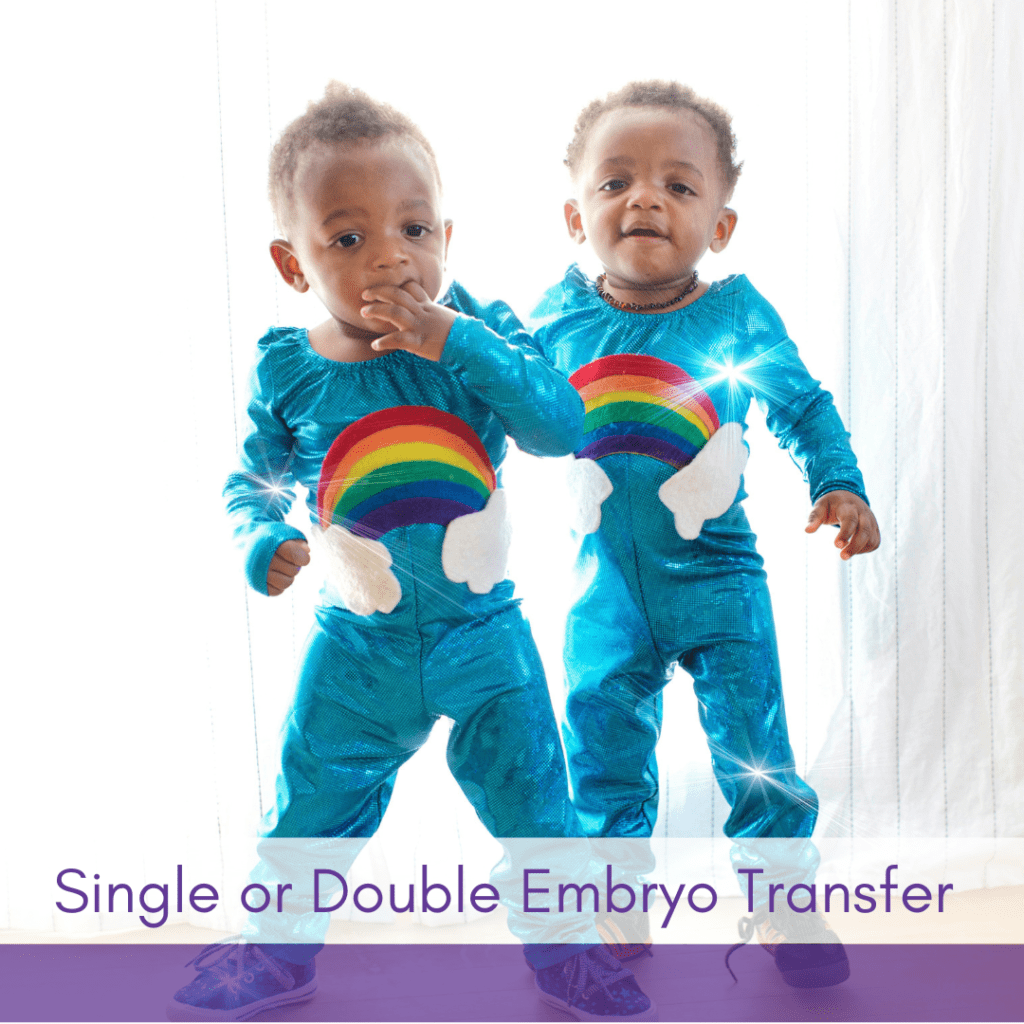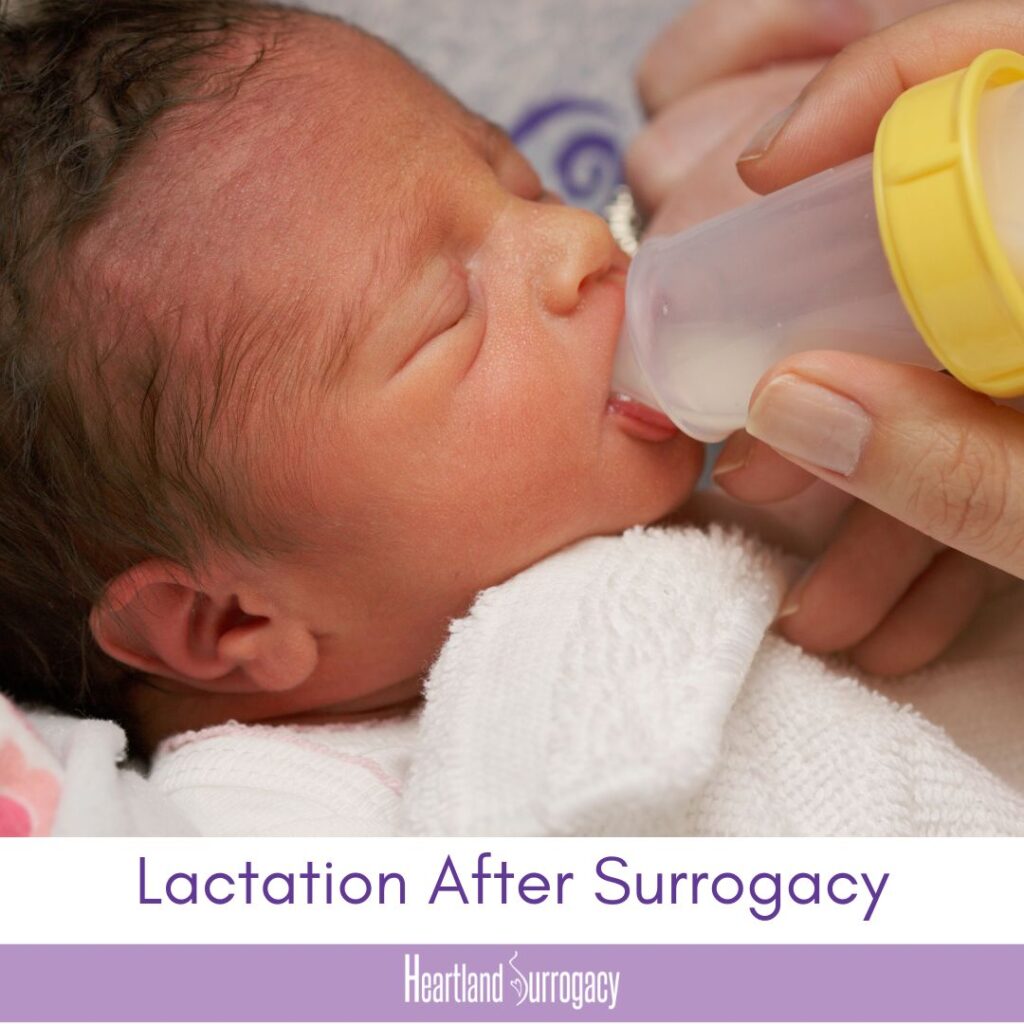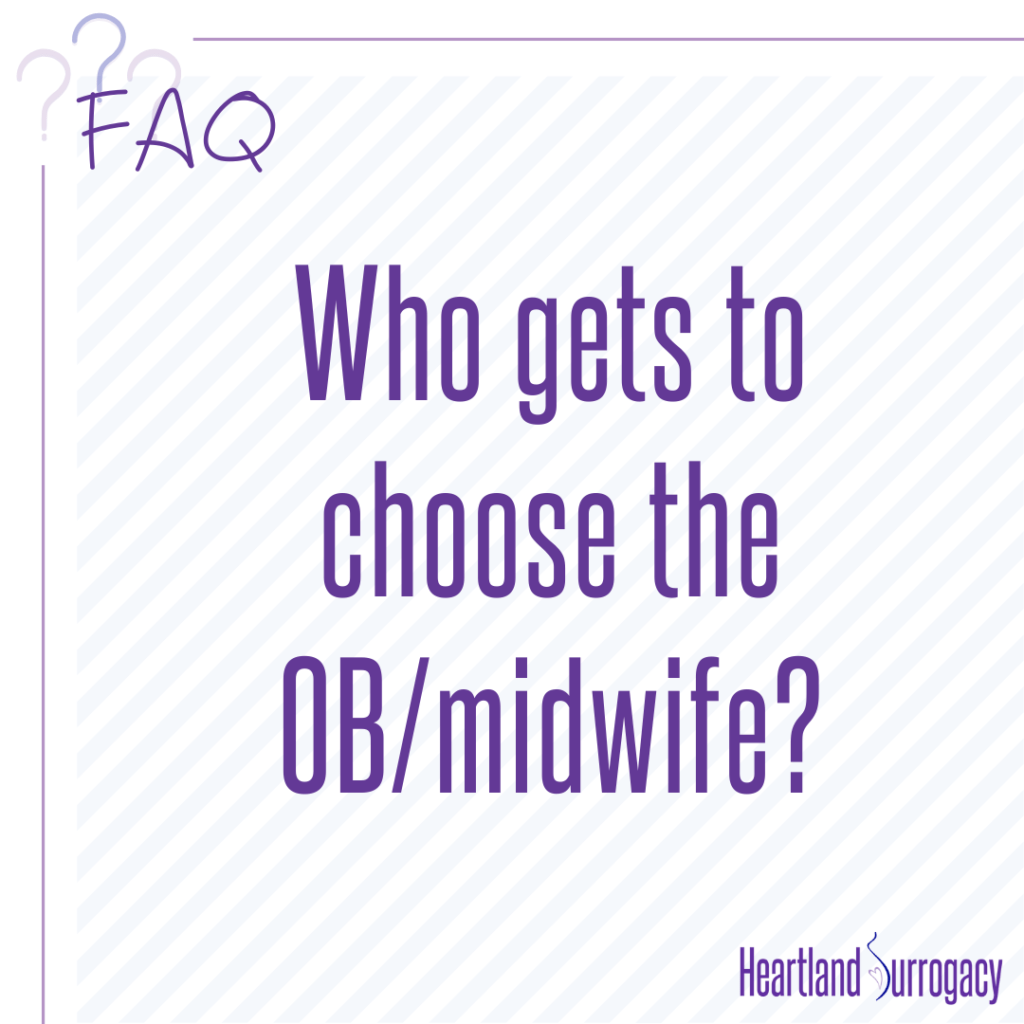
Providers in Surrogacy is a blog series compiled by Heartland Surrogacy. In this series we will bring you the professional and personal perspectives on surrogacy from a variety of professionals who we have been lucky enough to work with. This week, we meet a doula, Andrea Shandi, to learn about the support doulas can offer during a surrogate pregnancy and delivery.
Hi Andrea, thank you for taking the time to talk with Heartland Surrogacy! Can you tell us a little about yourself?
“My name is Andrea Shandri and I am a professionally certified doula & childbirth educator. I am always excited to share how doulas can benefit everyone involved in the birth and postpartum process! I also started Iowa Doula Agency two and a half years ago.”
First, what is a doula? What is their role in pregnancy, birth, and the postpartum? period
“A doula is a trained birth & postpartum professional who supports all involved (both gestational family and intended family) before, during, and after the birth. We come alongside the birthing person and their partner to provide emotional, physical, and informational support in many different ways. Doulas also help families think about and learn what they would like to experience during the birth.”
How is a doula different than a midwife?
“While sometimes their roles overlap a bit, a birth doula and a midwife have different scopes of practice. A midwife is the hired medical professional who oversees the health and safety of the birthing person and baby. A birth doula is the non-medical support person who commonly performs tasks like comfort measures, such as applying cold wash clothes and lip balm, massage, positional support. Doulas also provide emotional and mental support like helping to build confidence and teach methods of self-advocacy for the birth process.”
 What type of training do doulas undertake?
What type of training do doulas undertake?
“Many birth and postpartum doulas choose to become certified through a certifying body. Each certifying body has a different list of tasks that must be completed prior to obtaining certification. For example, Iowa Doula Agency recognizes three main doula certifying bodies – DONA, ICEA, and CAPPA. Generally speaking, birth and postpartum doulas must complete a multiple-day workshop, online coursework, a breastfeeding and childbirth education class, an intensive reading list, writing assignments, and obtain evaluations from birthing families and their care providers.”
Why did you decide to become a doula?
“As I began college, I knew I wanted to be involved with birth somehow so I started out on a Pre-Medicine track. After realizing the chemistry classes I needed to take, I quickly dropped it and moved on with a different degree (ha!), however, my fascination with the birthing process did not wane. Fast forward to 2010; I was pregnant with my first daughter and took a Bradley Method childbirth education class. We learned what a birth doula was and I hired one right away. After my birth experience, I knew that I wanted to be a doula! I attended my training workshop a few months after giving birth. I’ve been a doula for five and a half years and have attended over 130 births, both in home, hospital, and birth center.”

As you know, Heartland Surrogacy matches gestational carriers with intended parents. What do you think are the benefits of having a doula for a surrogate giving birth? Are there any additional benefits for the intended parents?
“I think having a doula would benefit all involved! Prior to the birth, the doula would encourage conversations that help define the birth-related hopes, goals, and concerns of both the intended parents and the gestational carrier. As an example, if skin to skin was desired, we’d love to see the intended parent read, perhaps wearing a robe, to hold the baby immediately. We’d potentially have the intended parents be positioned close to the bed, especially if they don’t plan on cutting the umbilical cord right away. Also, we know scent is important during birth and transition, so we could discuss the gestational carrier wearing a small piece of material in her bra for a few hours during labor and then place that piece of material close to baby’s face after birth.”
Prior to the birth, a doula may suggest that the Intended Parents record their voices reading a book so that the Gestational Carrier could play it on her belly. A doula could work with both the Intended Parent(s) and the Gestational Carrier to suggest various methods of providing sensory support to the baby, emotional support to the intended parents, and physical support to the gestational carriers!”

Could the new parents benefit from a doula postpartum, even if they were not the ones who recently gave birth?
“Of course – even more so! Whether you birthed the baby or not, the postpartum period is an important transition that naturally has many challenges, including sleep deprivation. A postpartum doula would meet the emotional, physical, and informational needs of the new parent(s). The postpartum doula would divide her skills and meet the needs of the gestational carrier, as well as the Intended Parents. For instance, the postpartum doula would still hold space and provide newborn care support, meal support, and household support to the parents and provide opportunity for the new parents to nap! Additionally, the doula can check in with the gestational carrier to support her physical and emotional needs. Hiring a postpartum doula means that you’d be preparing for the best experience possible during the new nights and days as parents.”
How should someone go about finding a doula?
“There are a few different avenues to finding a doula. One is a website called Doula Match. This website is a popular choice because it allows the option of searching based on zip code. Personally, I’m partial to the Iowa Doula Agency, because we have an extensive website that is an informational haven and lists our doulas and their biography, so you feel like you’re talking right with them. We also have two monthly “Meet the Doulas!” events, one in-person at our studios in Valley Junction and a digital “live” meet up with one click!”
What is the average cost?
“There’s a range of fees for doulas in the area; Iowa Doula Agency boasts multiple tiers of birth and postpartum doulas that meet the local market and fit most budgets and experience needs. Our doula fees range from $475 – $875, with add-on options available.”
Thank you so much for your time and sharing your experiences with us!




